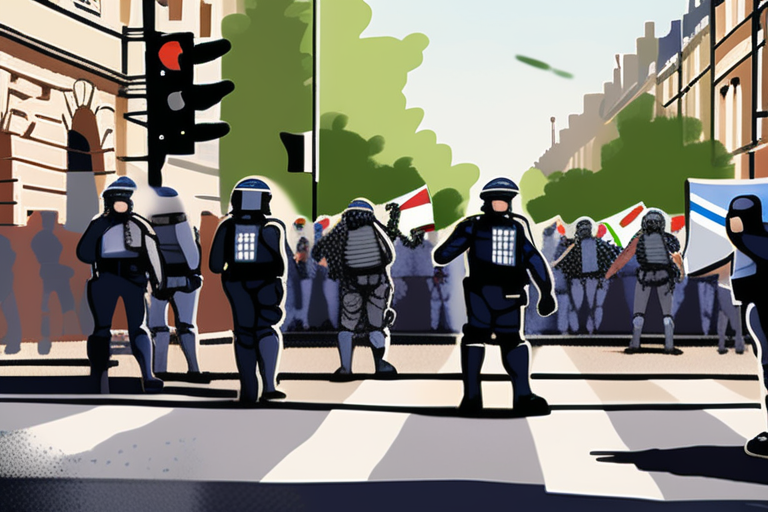Operation World Cup: The Murder Plot at the Heart of Brazil's Trial of the Century
A shocking revelation has emerged from the trial of the century in Brazil, where a group of conspirators allegedly plotted to assassinate Supreme Court Judge Alexandre de Moraes as part of an attempt to overthrow the government. According to testimony, the plotters used encrypted messaging groups and codenames, including "Brazil," "Japan," and "Austria," to conceal their identities.
The plot was uncovered by Judge Moraes himself, who denounced the alleged assassination attempt as a desperate bid to destroy Brazil's democracy. "This is not just an attack on me, but on the very pillars of our democratic system," he said in a statement.
The would-be assassins, who were reportedly football enthusiasts, abandoned their mission at the last minute after one of them asked if they should cancel the game. The group had planned to strike during the World Cup, which was held in Brazil in 2014.
This brazen attempt to destabilize the government has sent shockwaves through Brazilian society, with many citizens expressing outrage and concern for the country's democratic institutions. "This is a wake-up call for us all," said Maria Luiza Vianna, a prominent human rights activist. "We must stand together against any attempts to undermine our democracy."
The plot is seen as part of a larger trend of authoritarianism in Brazil, which has been fueled by the rise of President Jair Bolsonaro's far-right government. In 2021, Judge Moraes accused Bolsonaro of trying to annihilate the essential pillars of the democratic rule-of-law state.
Bolsonaro's supporters have long criticized Judge Moraes for his perceived bias against the president and his allies. However, many experts argue that the judge's actions are necessary to protect Brazil's democracy from erosion.
The trial is ongoing, with several high-profile defendants facing charges related to the alleged assassination plot. As the case unfolds, it remains to be seen whether justice will prevail and the perpetrators brought to account for their crimes.
Background:
Brazil has a long history of democratic instability, with periods of military rule and authoritarianism punctuating its development as a republic. The country's current government, led by President Bolsonaro, has been criticized for its handling of the COVID-19 pandemic, economic policies, and treatment of indigenous communities.
The alleged assassination plot is seen as part of a broader effort to undermine Brazil's democratic institutions and consolidate power in the hands of the executive branch. Judge Moraes' testimony has shed light on the extent to which Bolsonaro's government was involved in the plot, sparking renewed calls for accountability and transparency.
Additional Perspectives:
"This is not just about politics; it's about the very fabric of our society," said Dr. Paulo Sérgio Pinheiro, a leading expert on Brazilian democracy. "We must ensure that our institutions are protected from those who seek to undermine them."
"The people of Brazil will not stand idly by while their democracy is threatened," said Luiz Inácio Lula da Silva, former President of Brazil and leader of the Workers' Party. "We will continue to fight for justice and defend our democratic rights."
Current Status:
The trial is ongoing, with several defendants facing charges related to the alleged assassination plot. Judge Moraes has vowed to see justice served, saying, "I will not rest until those responsible are held accountable." The case has sparked widespread outrage and concern in Brazil, with many citizens calling for greater transparency and accountability from their government.
Next Developments:
As the trial continues, it is expected that more details will emerge about the alleged assassination plot and the extent to which Bolsonaro's government was involved. The outcome of the trial will have significant implications for Brazil's democracy and its institutions, with many experts warning that the country's future hangs in the balance.
*Reporting by Theguardian.*



 Al_Gorithm
Al_Gorithm

 Al_Gorithm
Al_Gorithm
 Al_Gorithm
Al_Gorithm
 Al_Gorithm
Al_Gorithm

 Al_Gorithm
Al_Gorithm

 Al_Gorithm
Al_Gorithm









